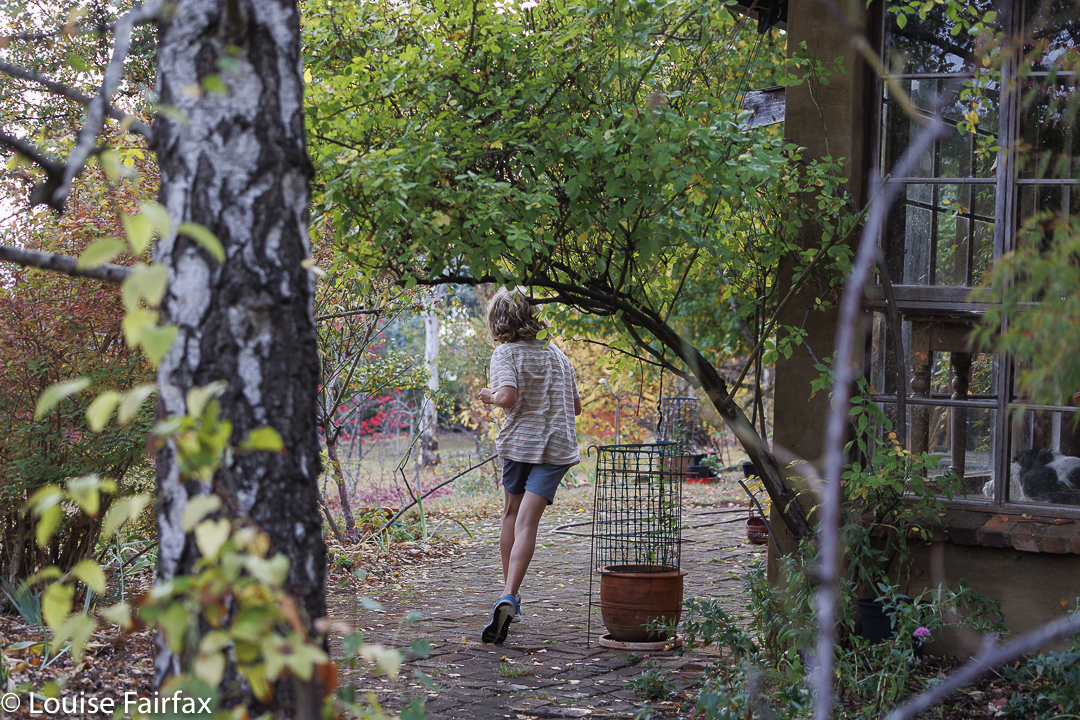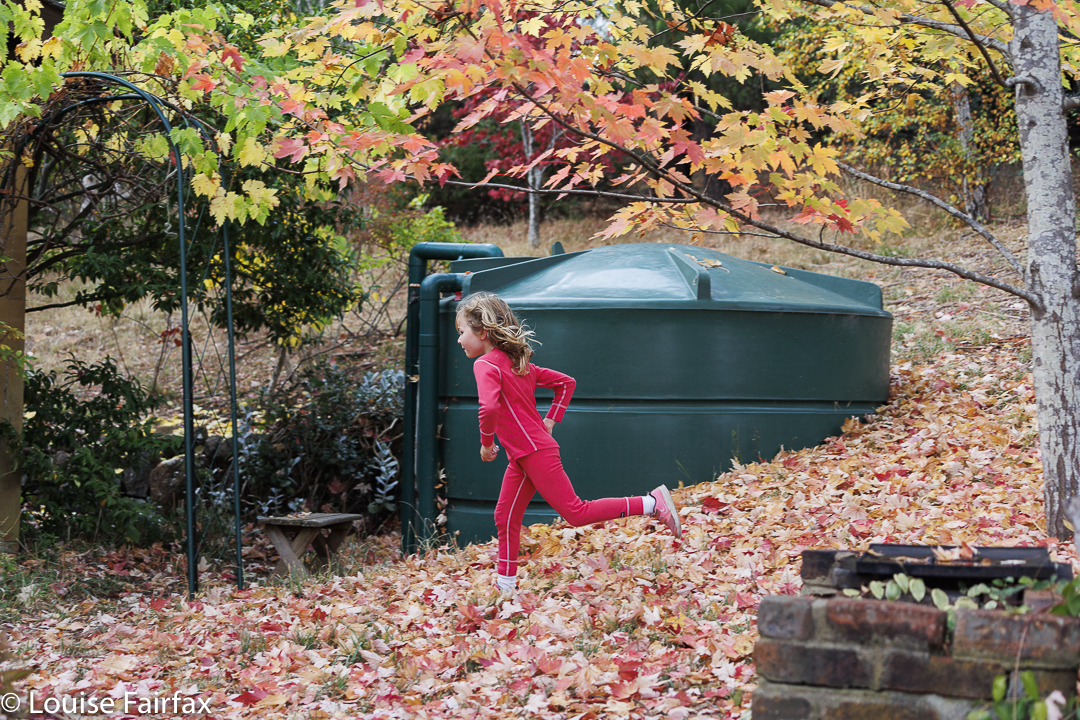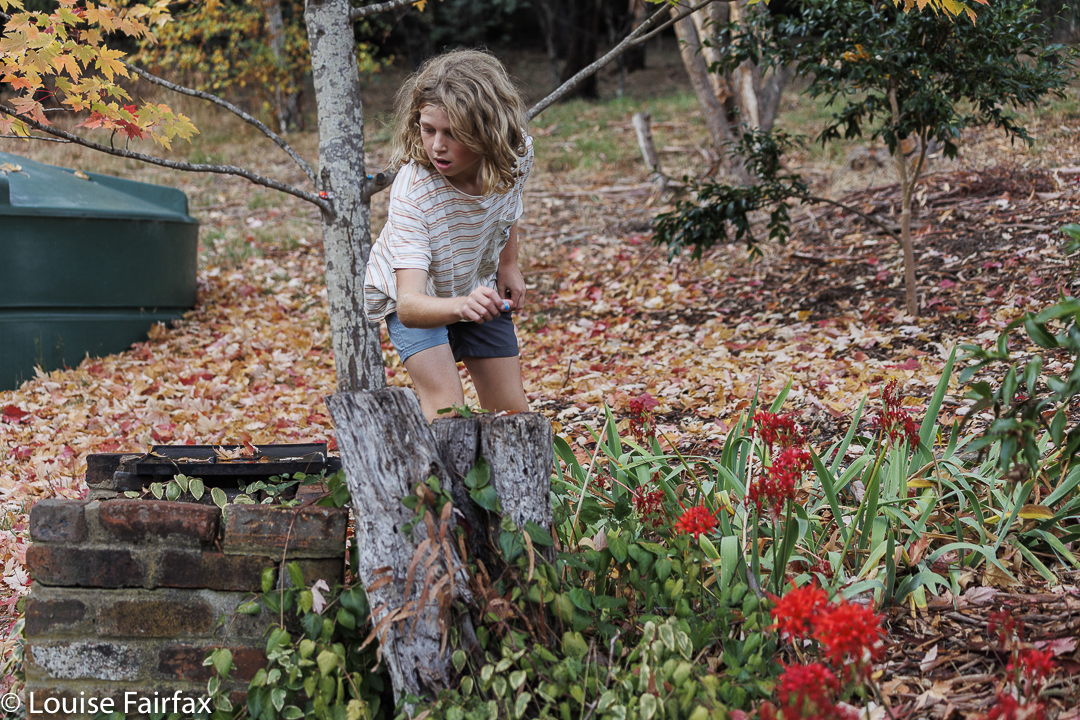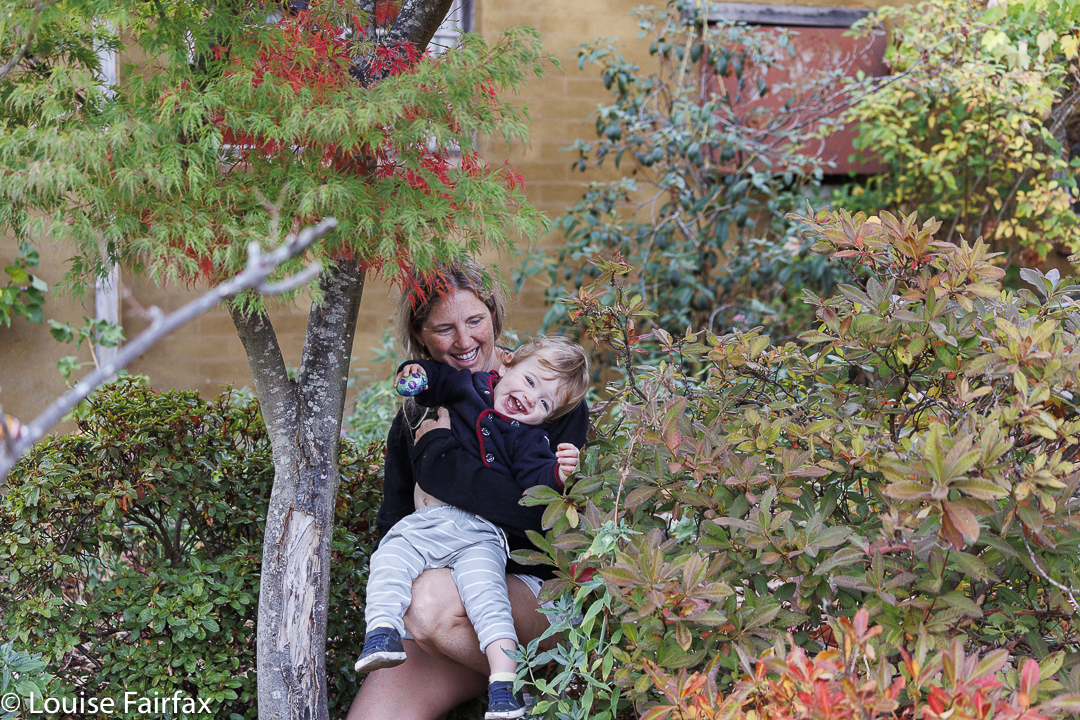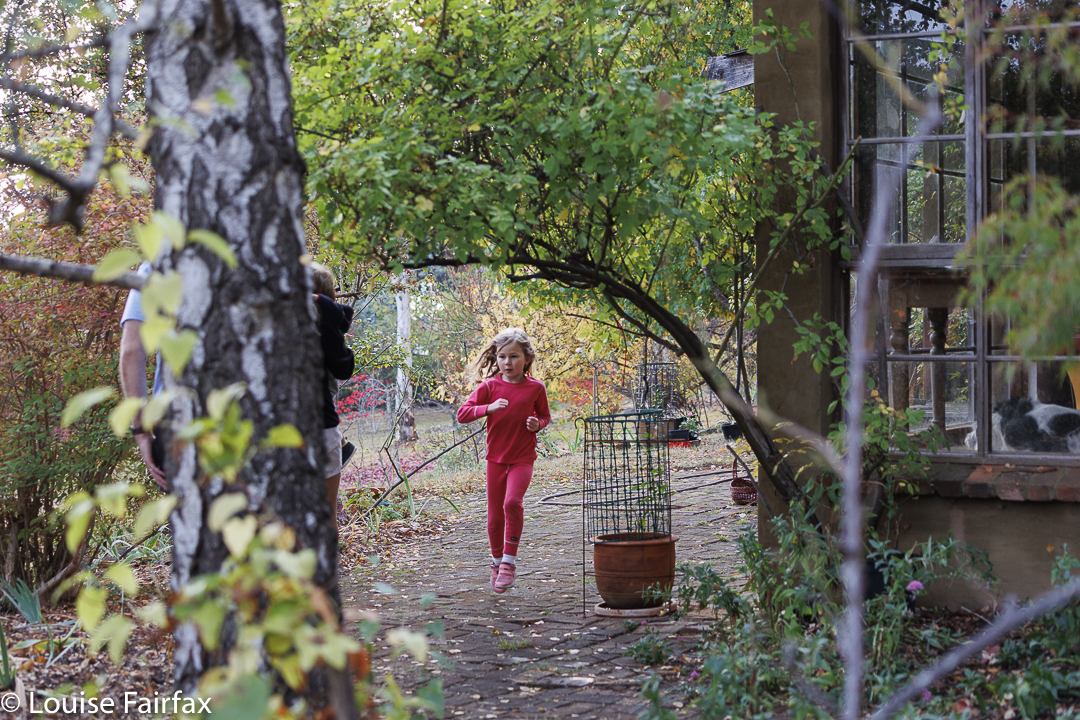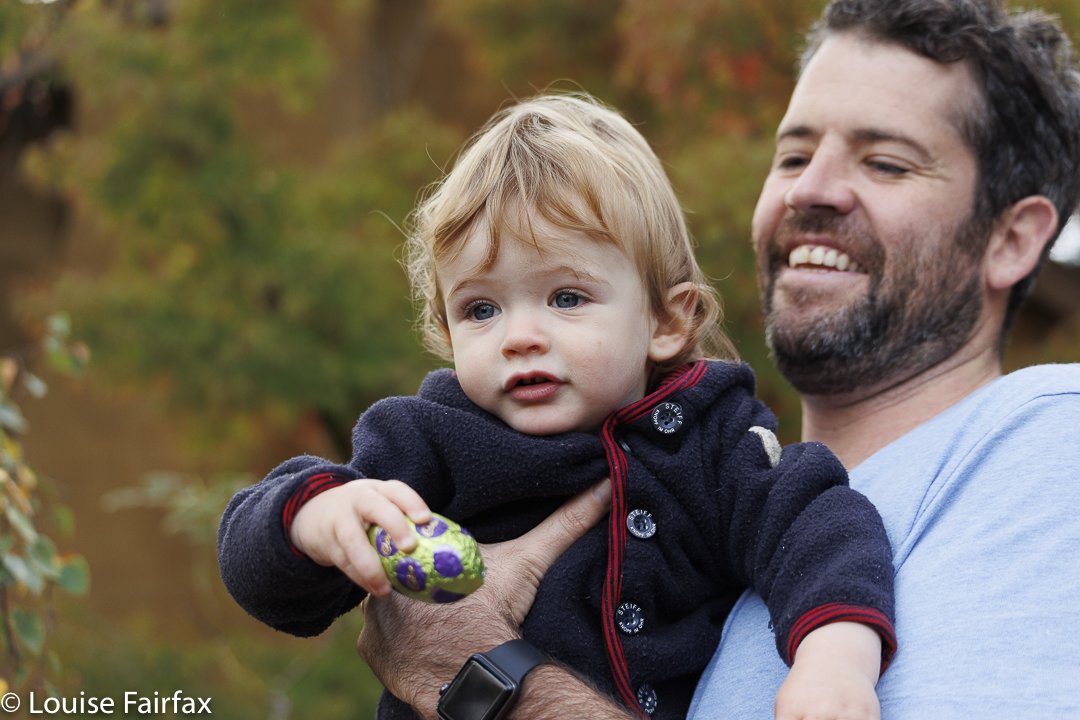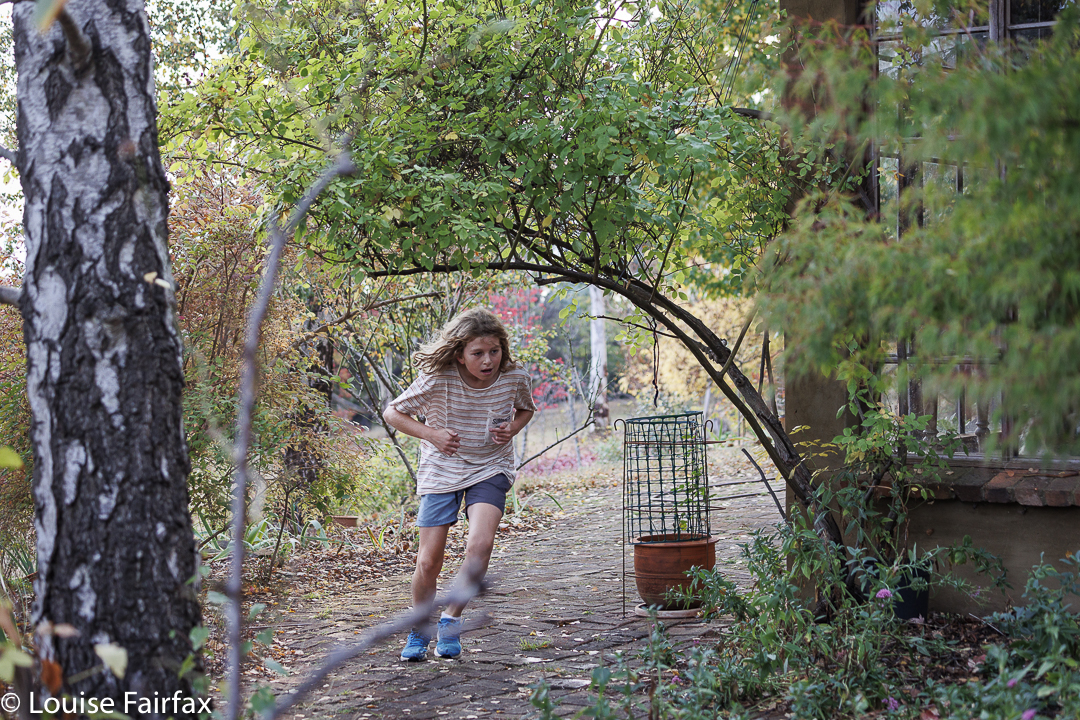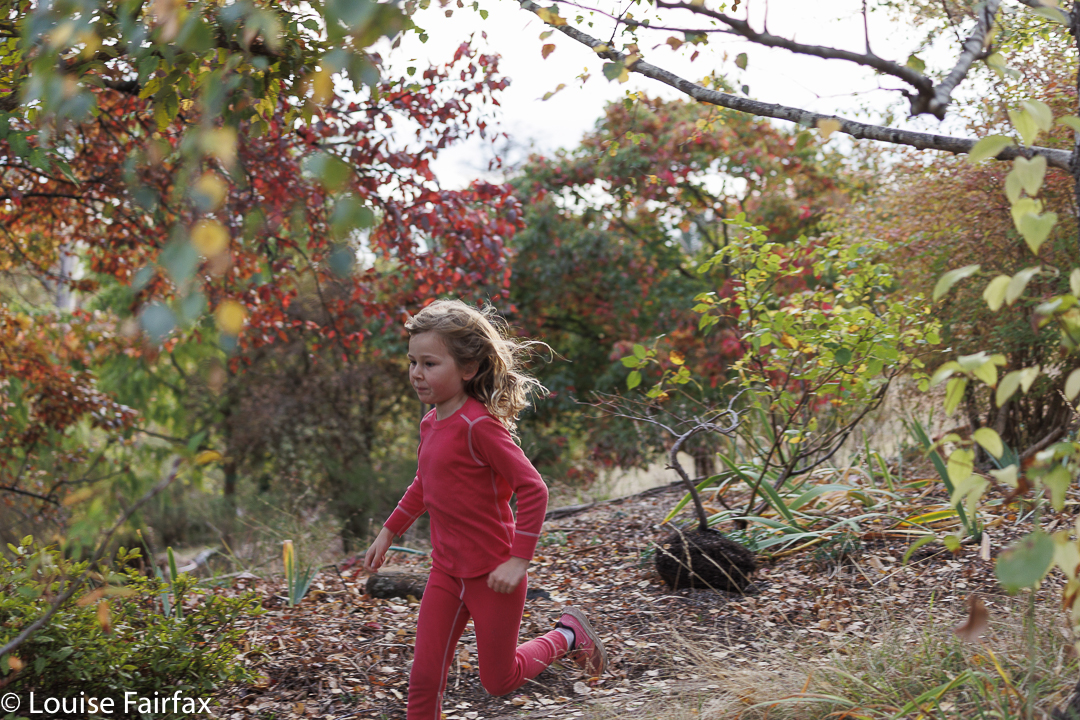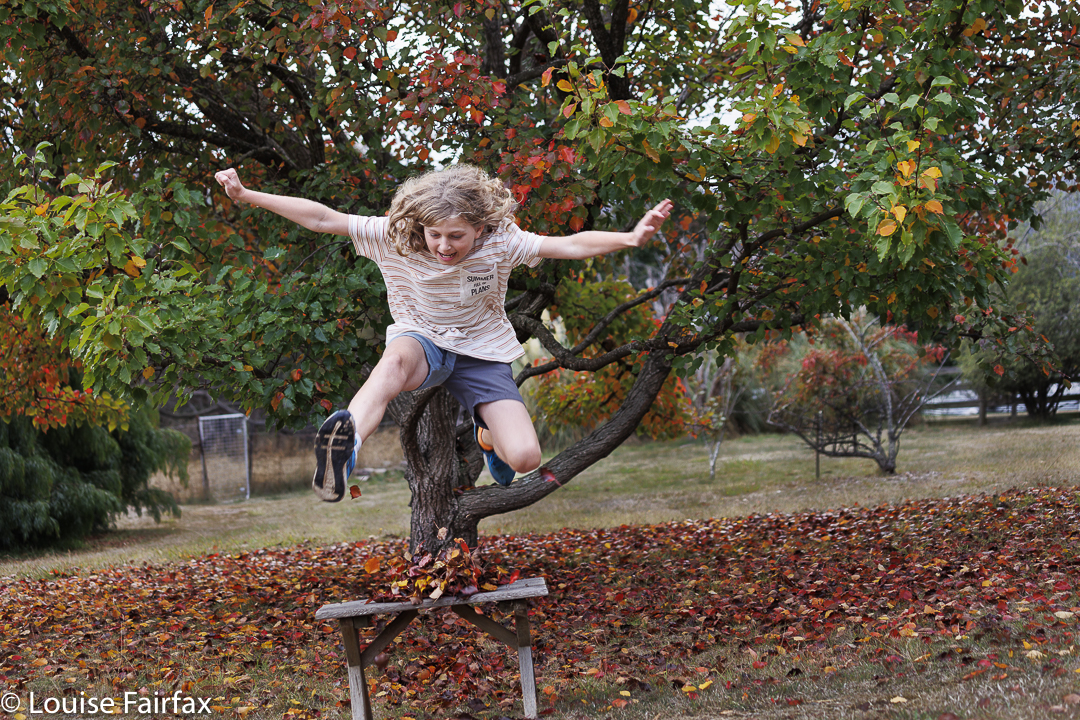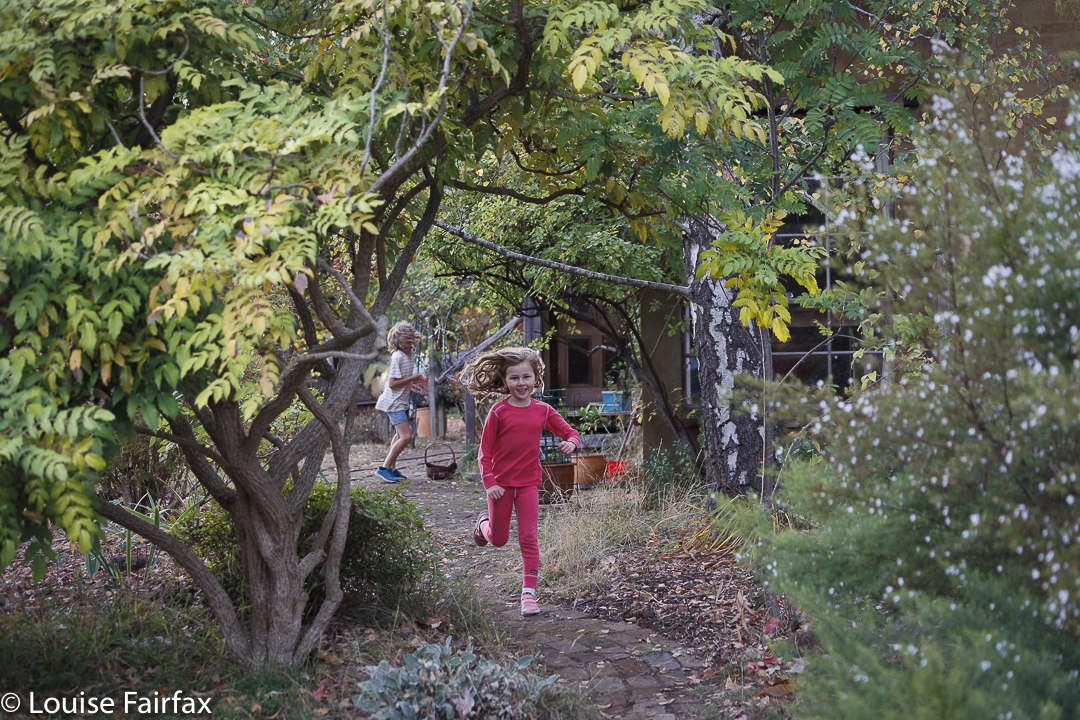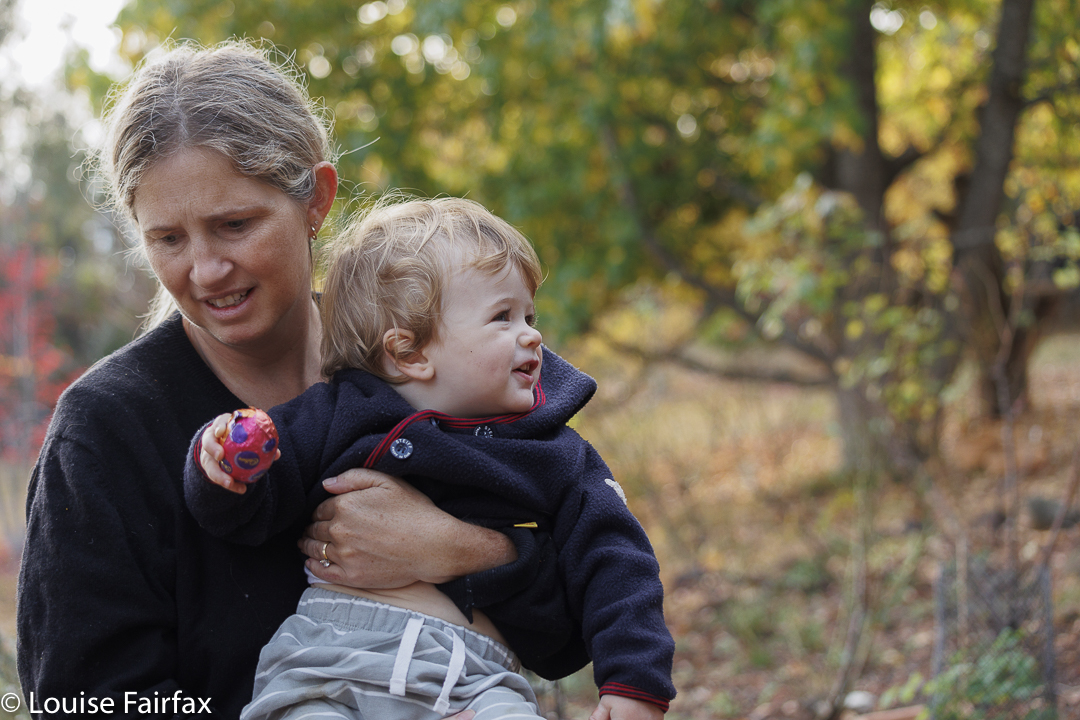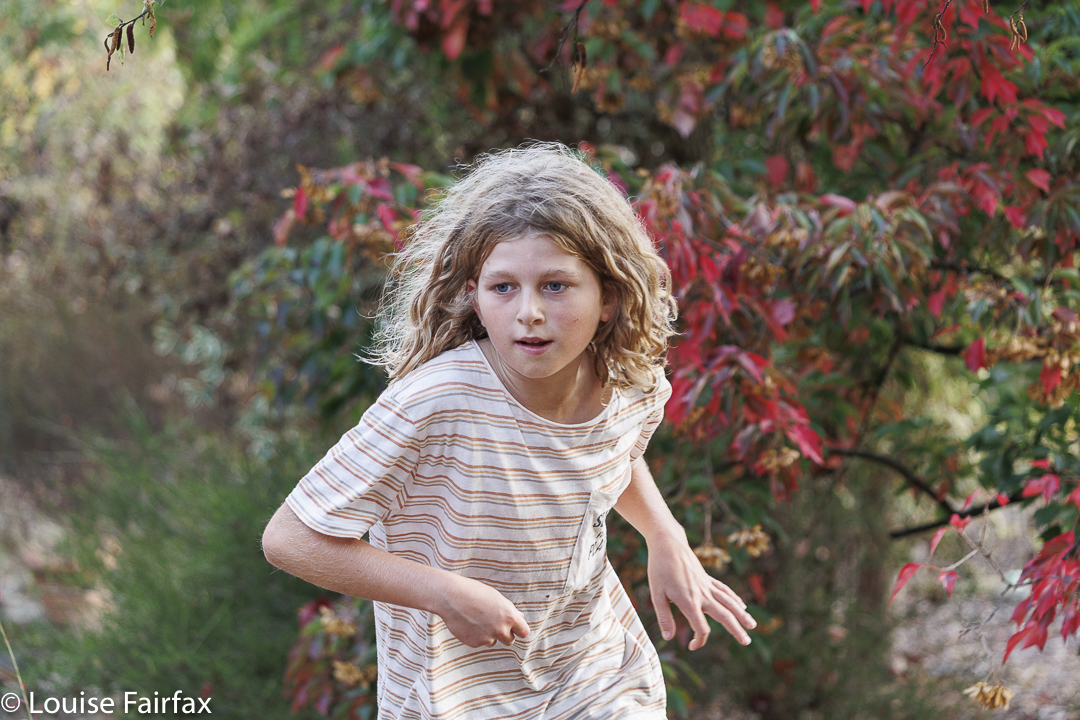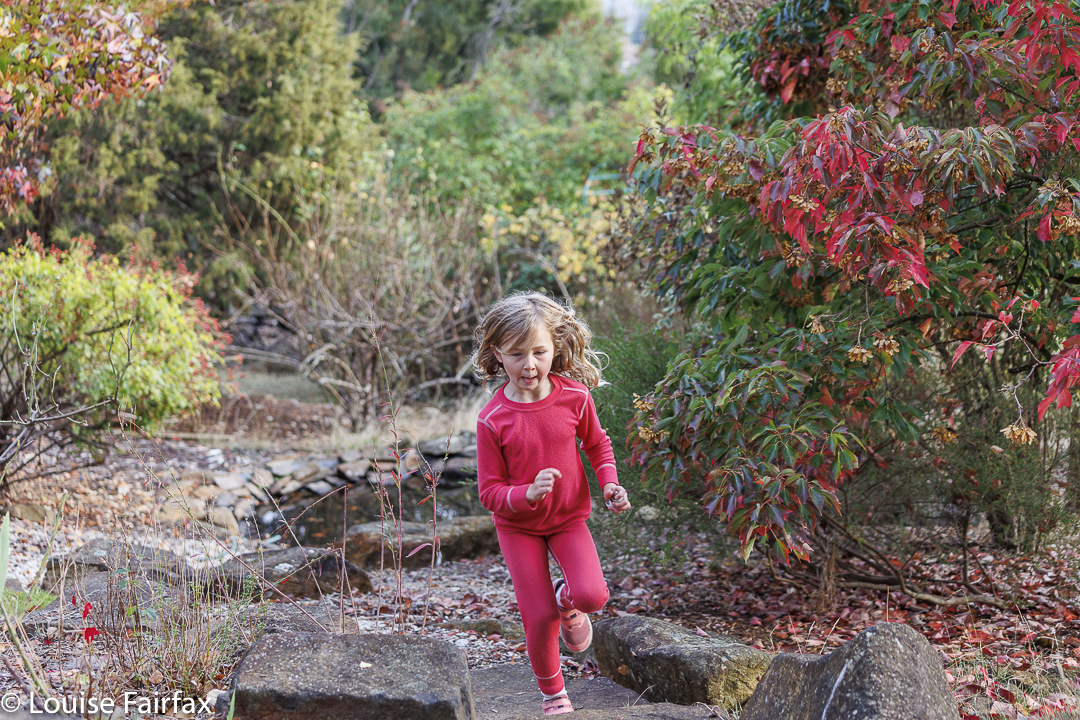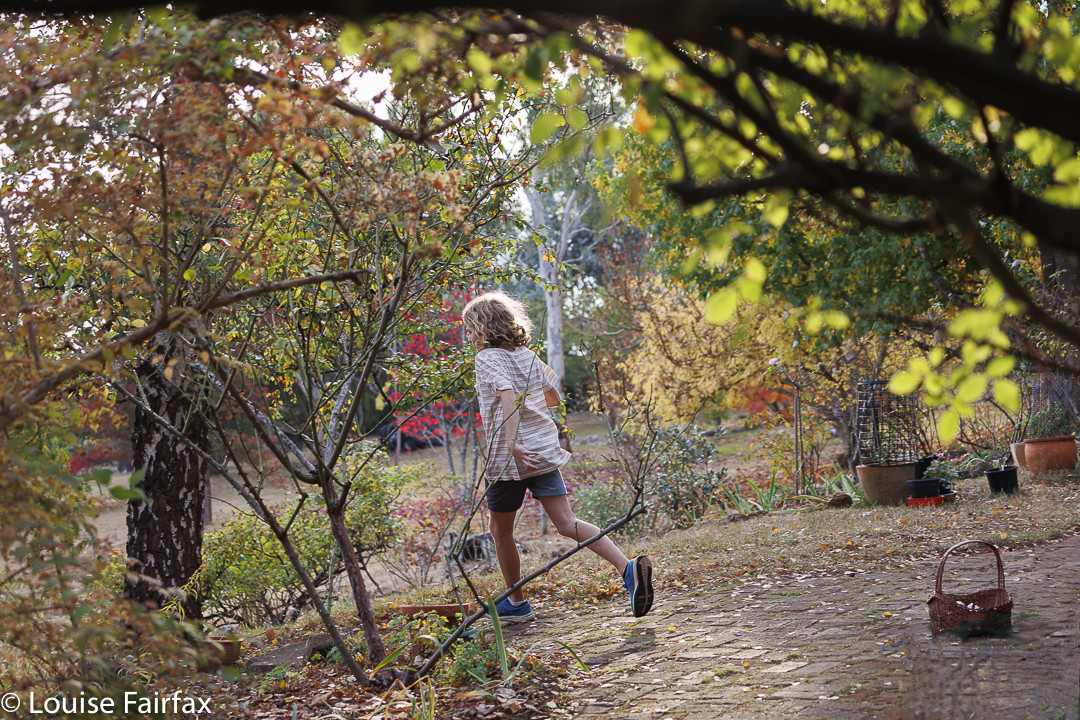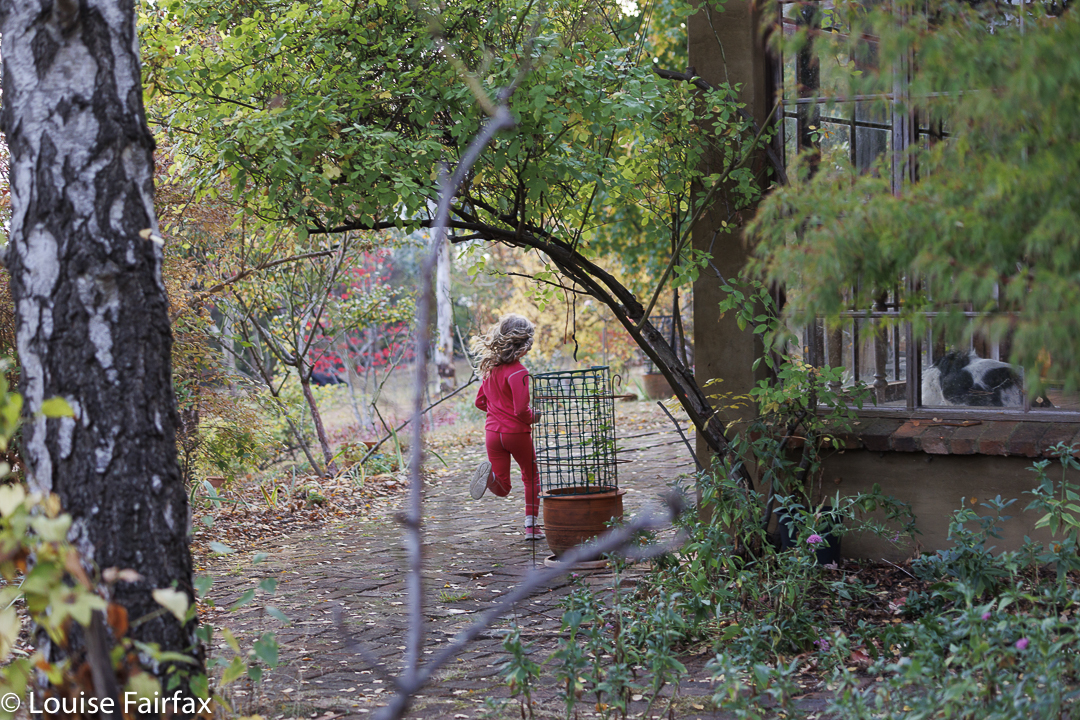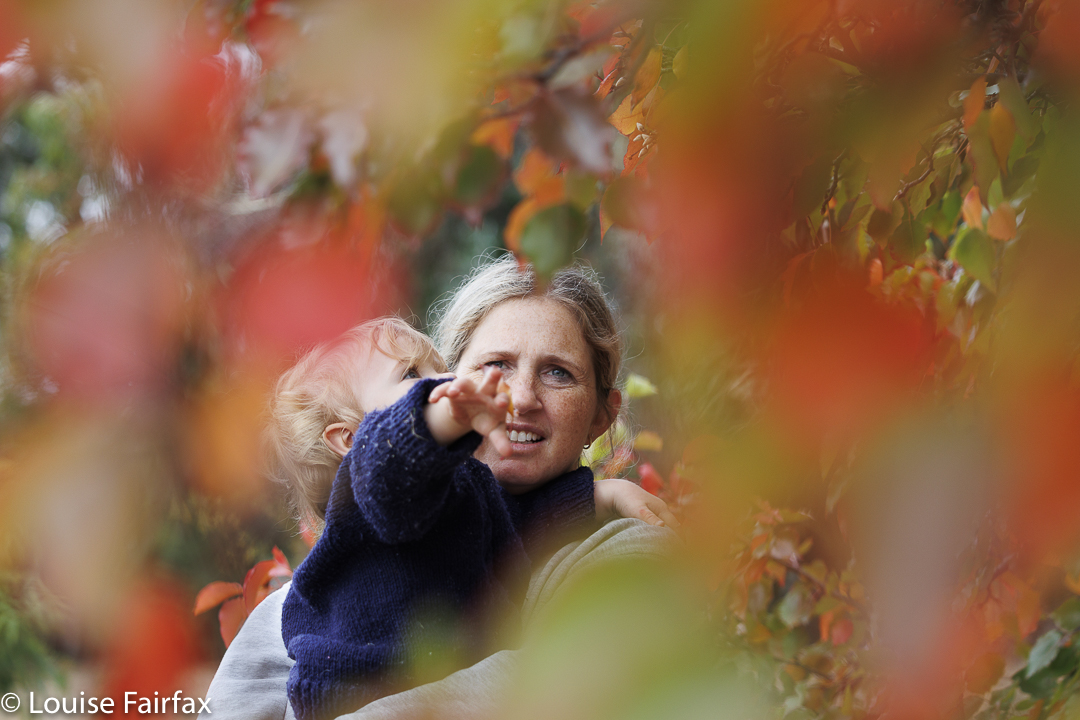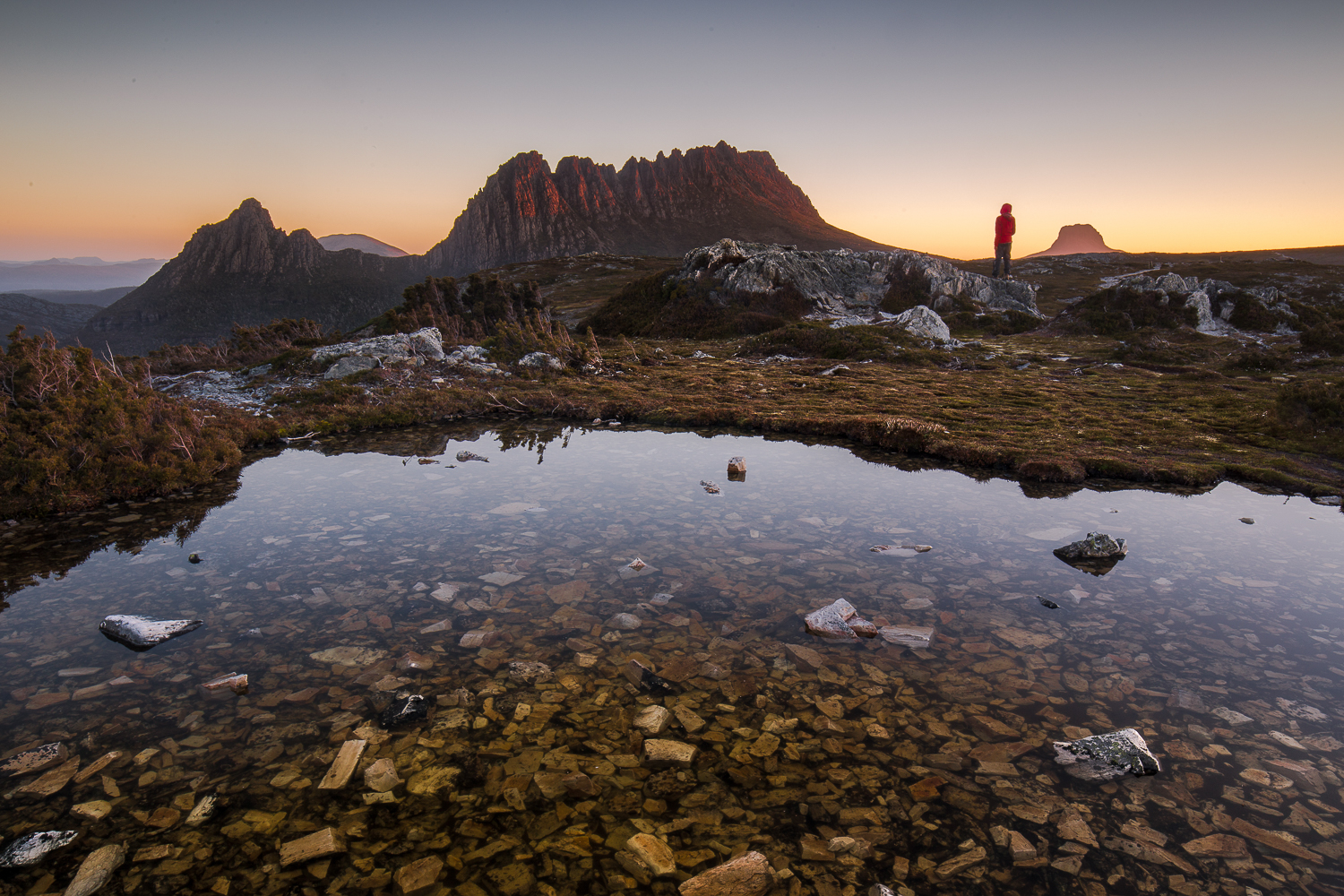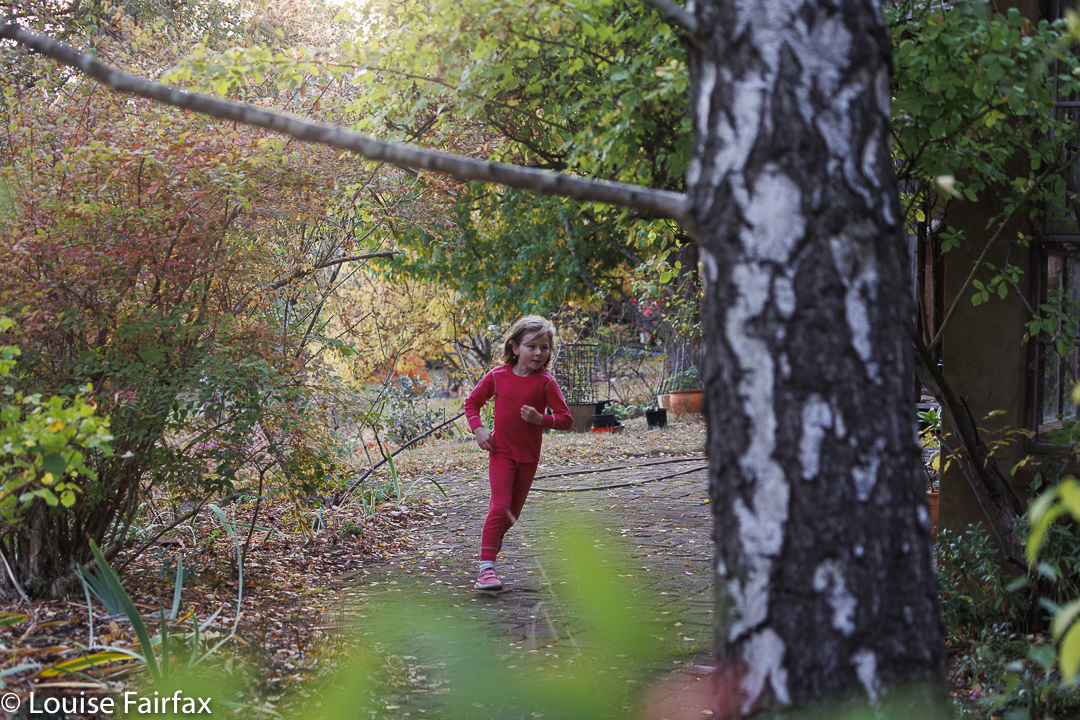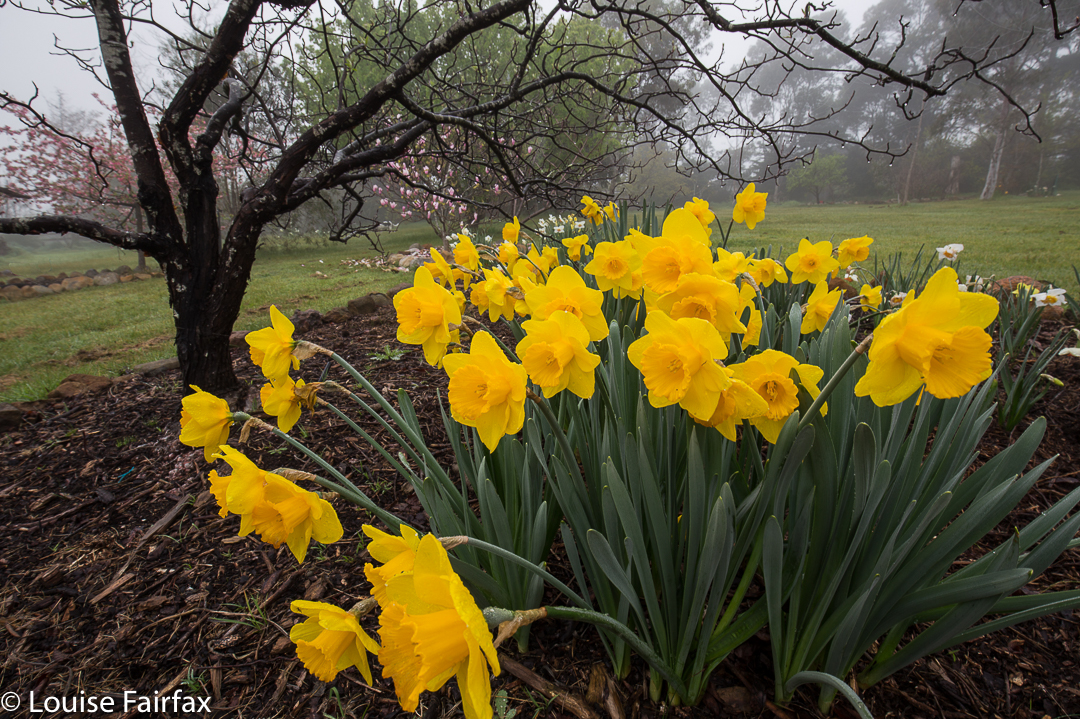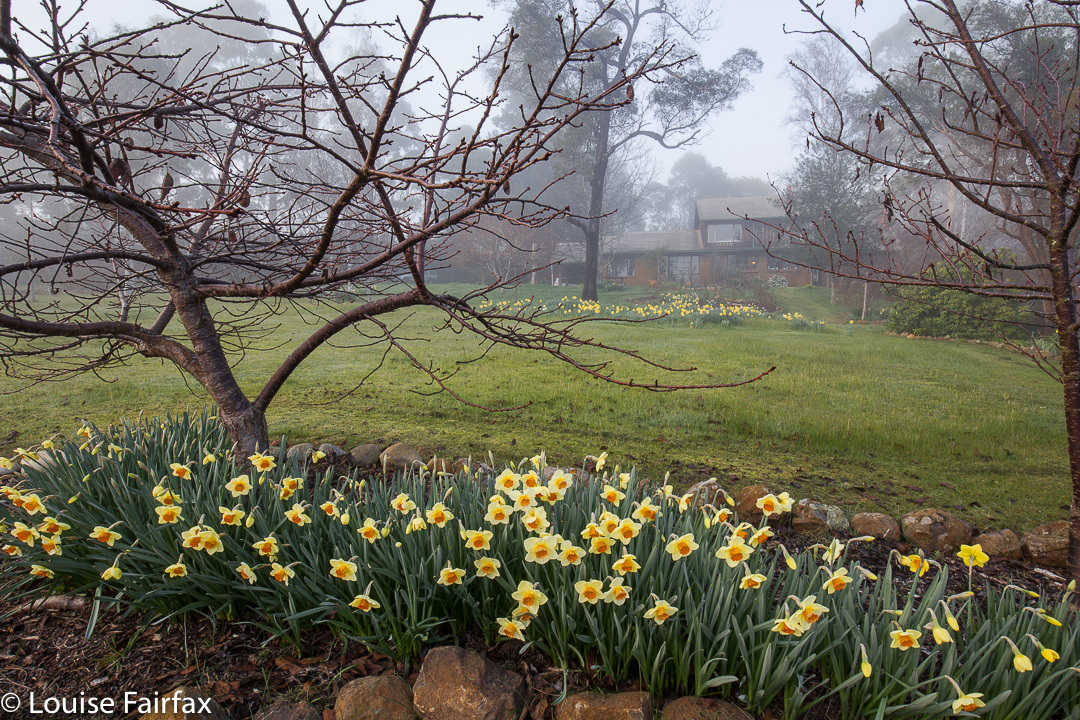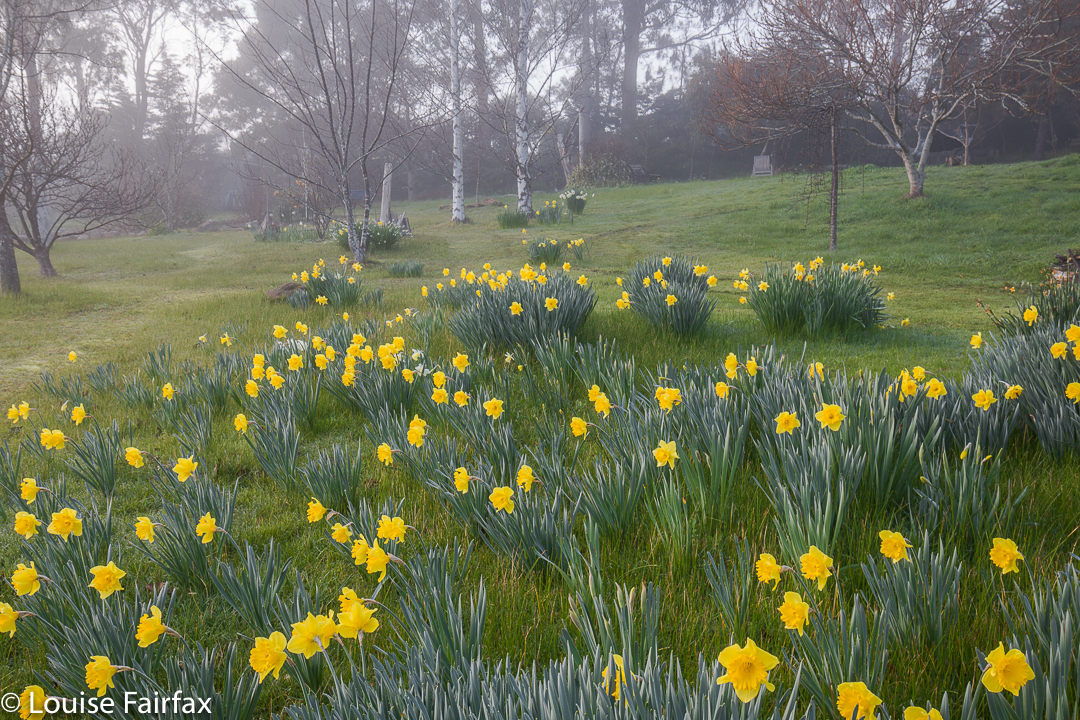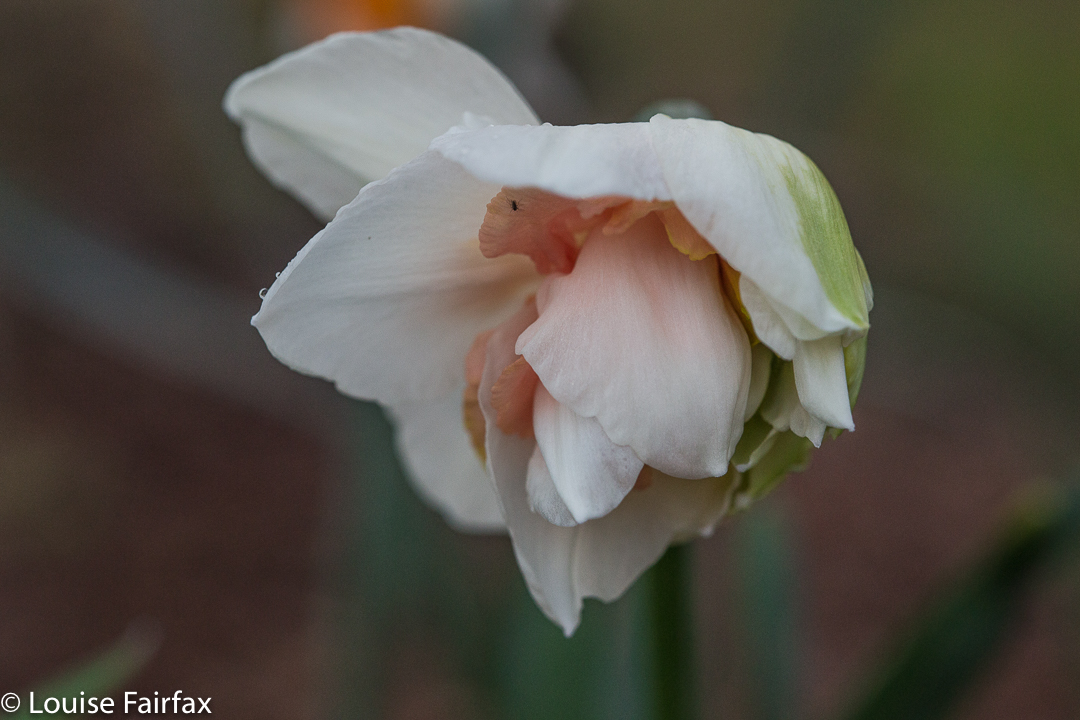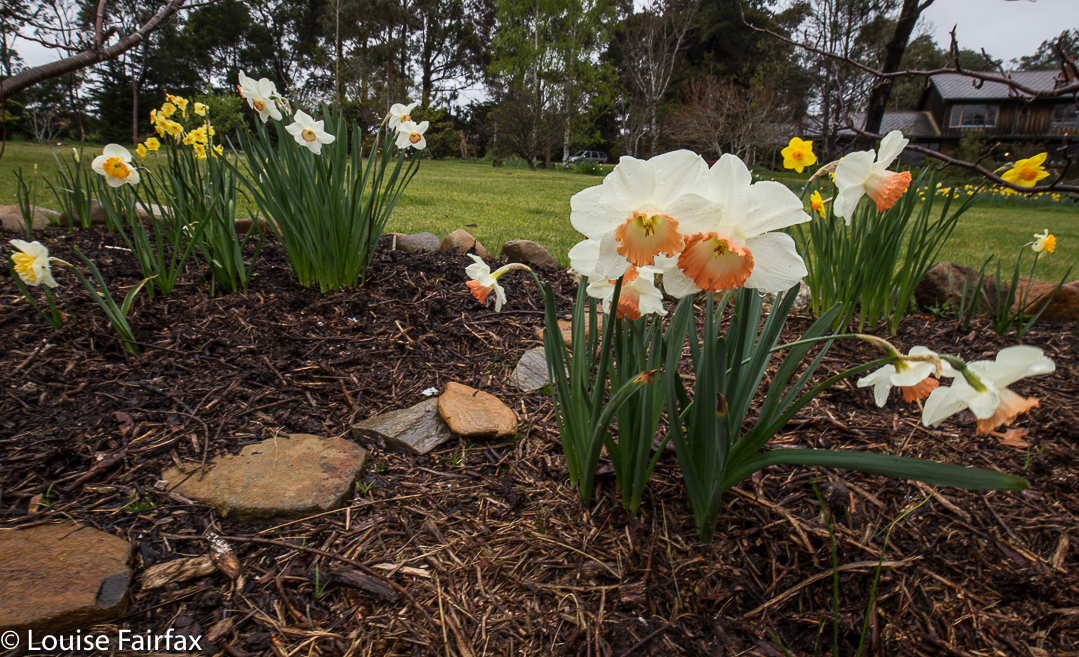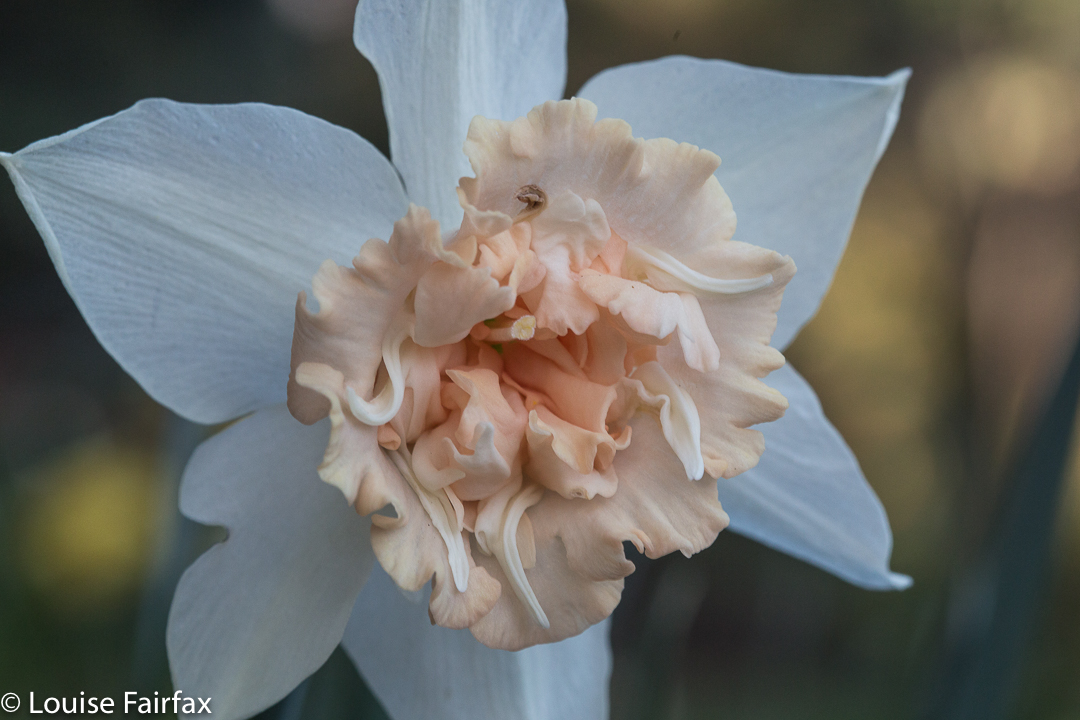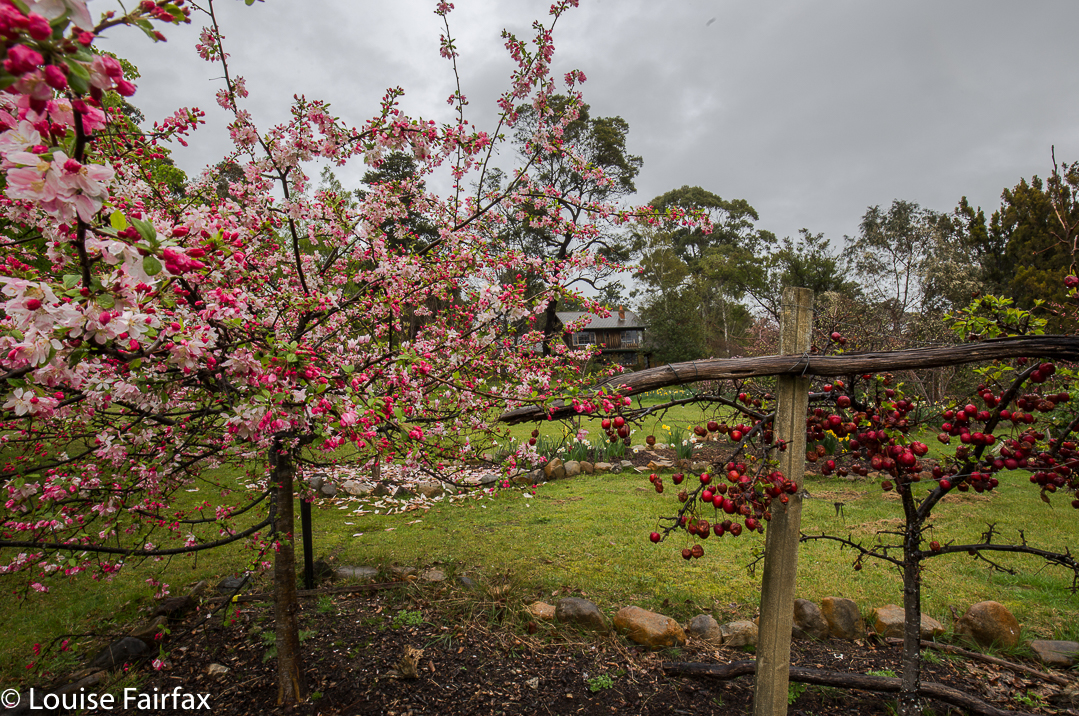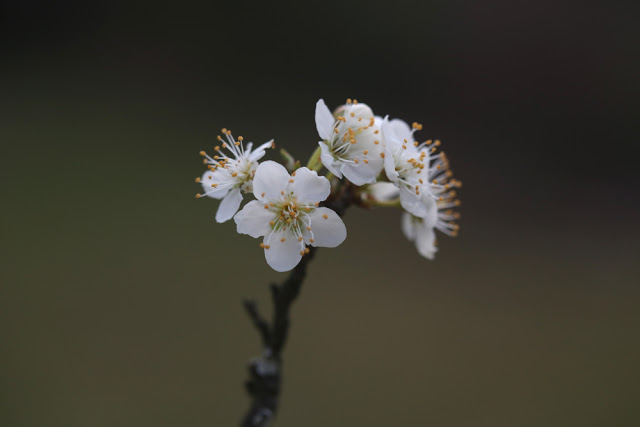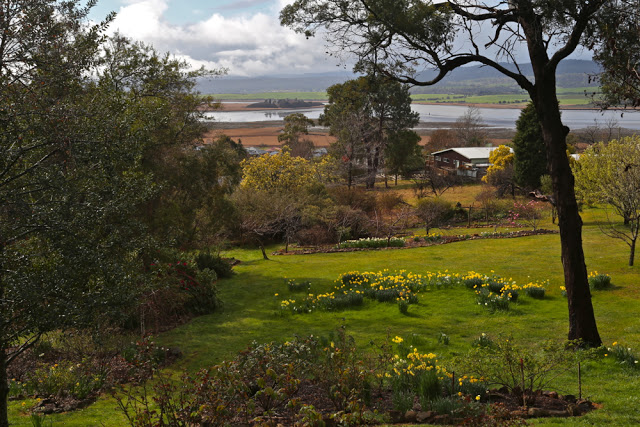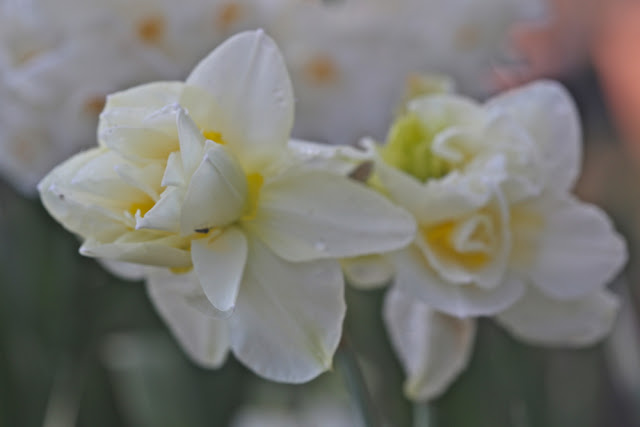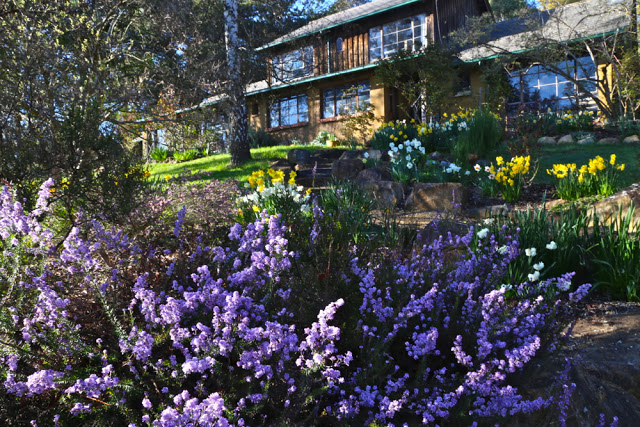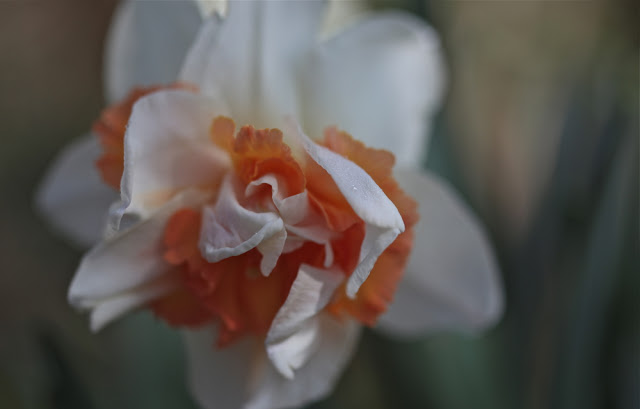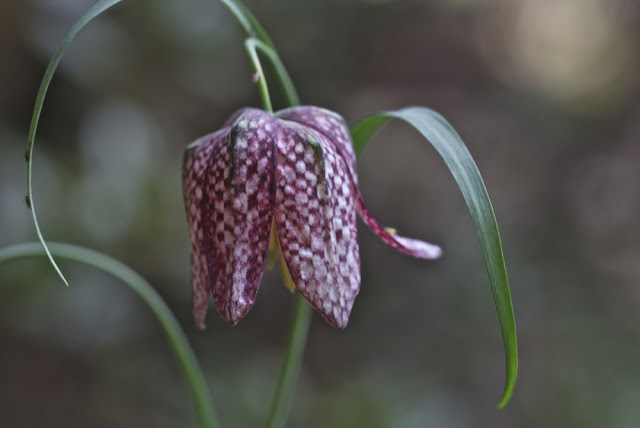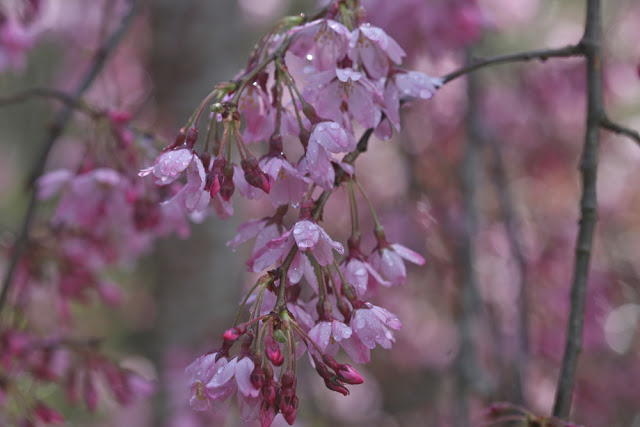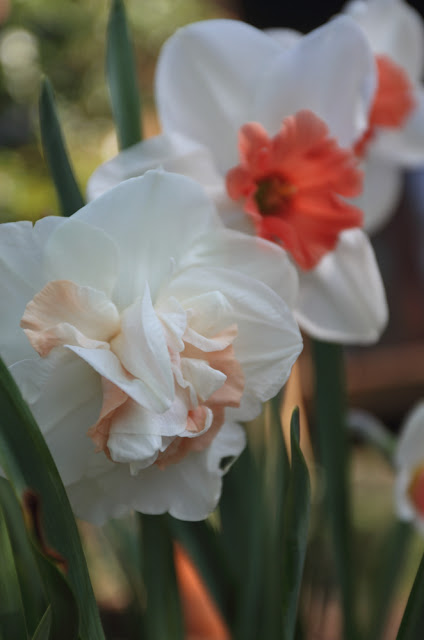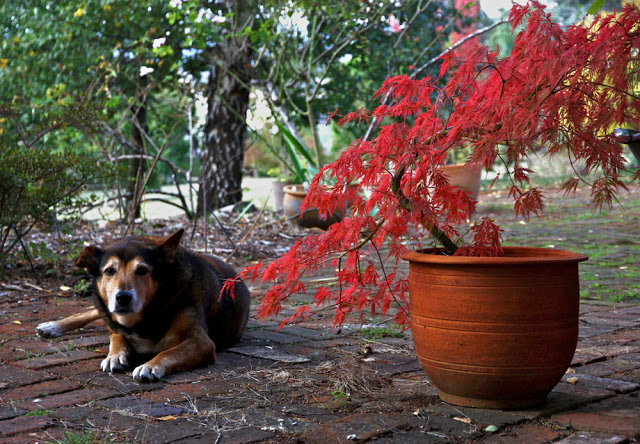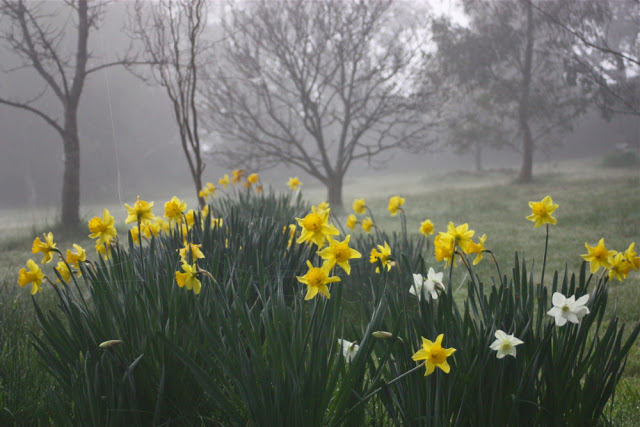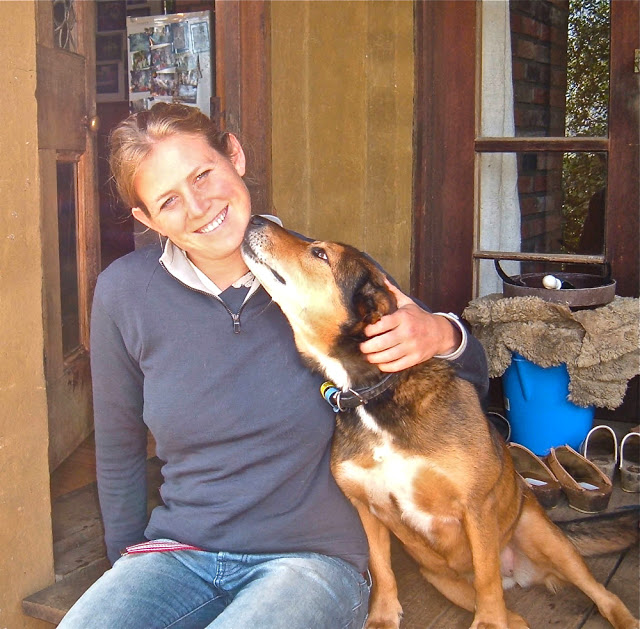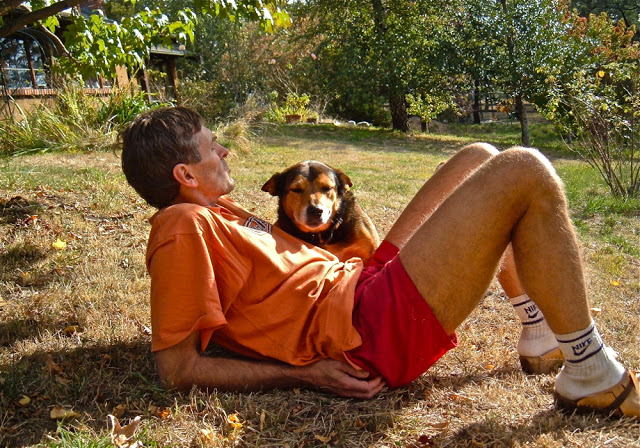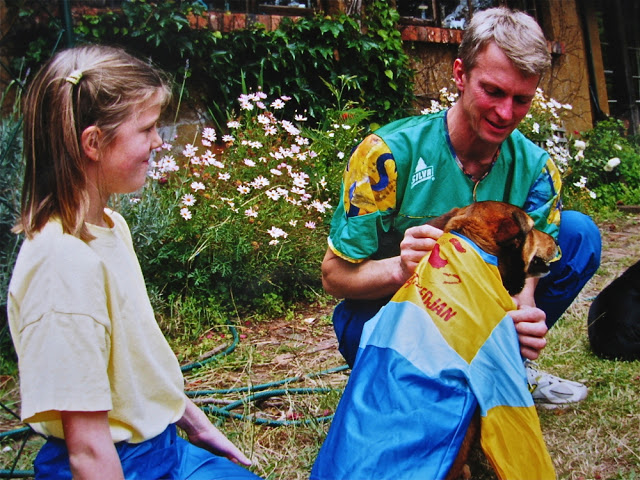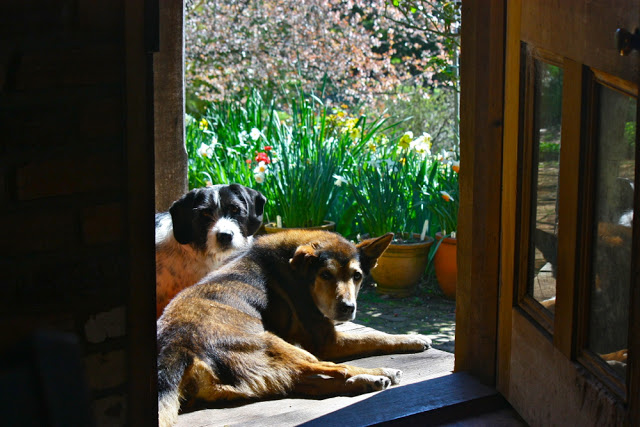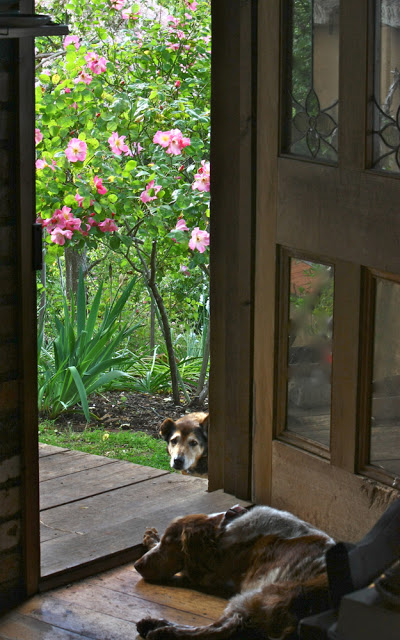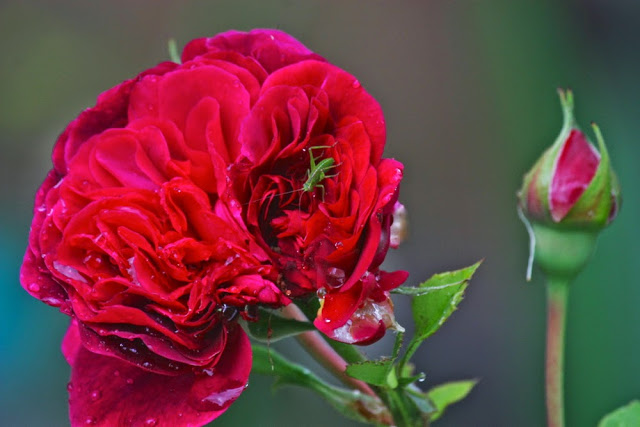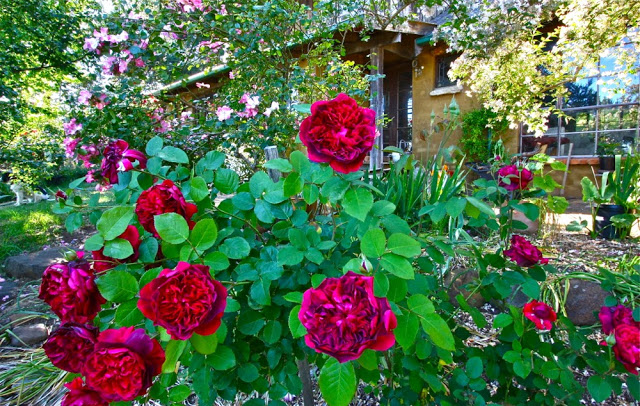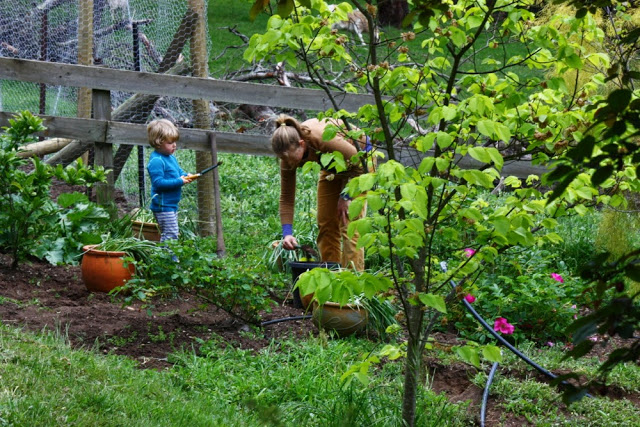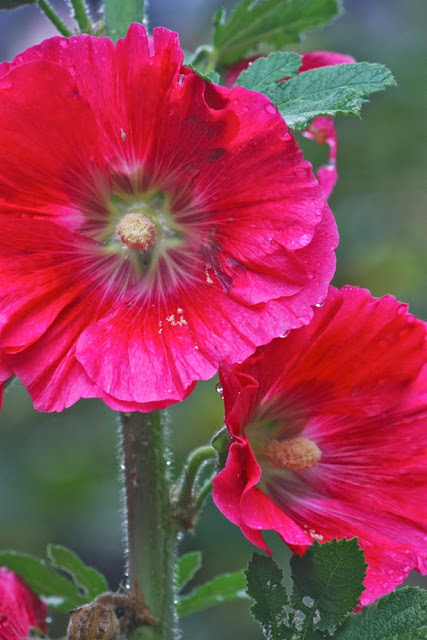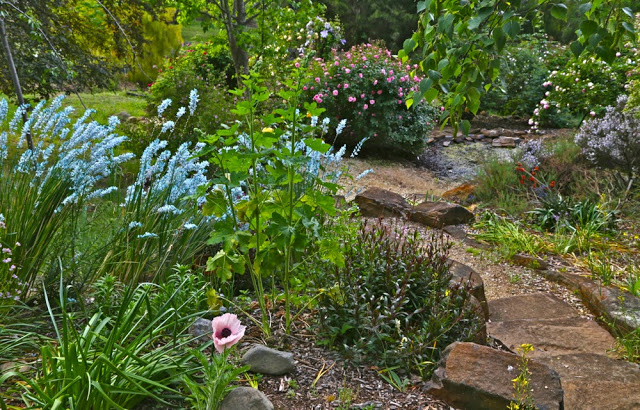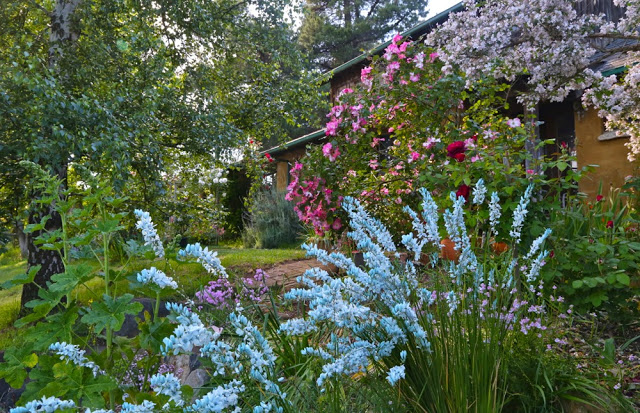Poppy after her stroke
As Poppy lay dying yesterday, she wanted to hear the sound of my voice. I sang to her a bit, and I also told her stories of when she was a puppy. Any time my voice stopped, she grew apprehensive. My husband, when he took over the baton in the late afternoon, did the same.
Fields of daffodils – superb for chasing hens
Whereas most dogs have the dignity of being chosen by their owners, Poppy, being different, chose us. I remember the day in spring 1999 very well. I had finished lunch and was quickly washing dishes before getting back to my desk. Outside there was a mighty clucking and squawking. It was my hens (free range) objecting to the intrusion on our property of a puppy who was chasing them through the daffodils that grow in the grass outside the window. The foliage gave the chooks a fair chance, and their darting and dashing between stalks gave me time to get out to where they were and call this renegade pup over.
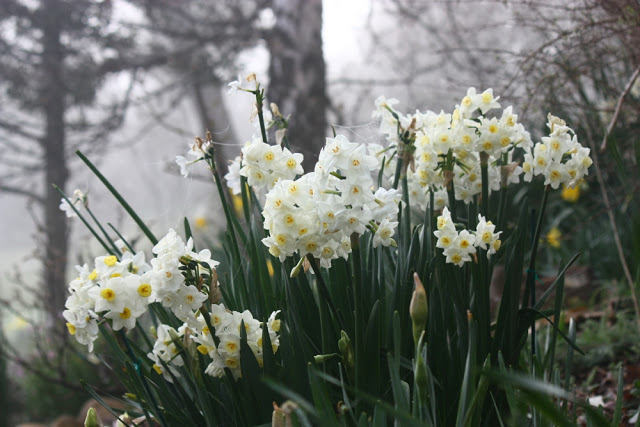
“Hey, puppy,” I called. “What do you think you’re doing? Those are my hennies.”
She looked at me with great big eyes, and came trotting over. She had no answer to my reasonable question, but sat near my feet.
“Where have you come from?” Again, no answer, just soft eyes looking at me trustingly.
“Hm. Well, you can’t chase my hennies. You’d better come inside to keep you out of mischief.”
In she came, happily. Soon there was a puddle on the kitchen floor. Oh, right. She’s not house-trained.

I wasn’t quite sure what to do, and had work I needed to get on with, so told her to behave whilst I was at my desk, and promised to take her running later in the afternoon. “You can show me where you live.” Meanwhile, I did the normal things like alerting the local radio and newspaper that a lost puppy was at our place. That evening she ran obediently at heel as I ran every road in the neighbourhood, asking her repeatedly: “Which is your house, puppy?” She refused to acknowledge even slight recognition of any buildings we passed. I was acting on the assumption that she wanted to return to her owners. However, after an hour of enjoyable running, but no success on the returning of the puppy task, we came back home.
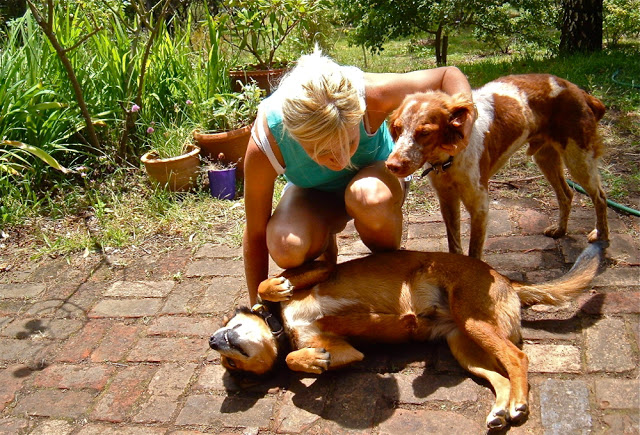
She seemed a sweet little thing, and had had no squabbles with our existing dog, Kinna, so maybe we could keep her. About an hour later, my husband walked in the kitchen door, dressed in his working clothes of a dark suit with black shoes. This puppy yelled and barked aggressively at him and stood solidly protecting me against such a shocking intruder. Bruce was dumbfounded.
“What is this – apart from not much of a greeting at the end of the day?”
“Well, she was a darling puppy who arrived on our property, but she doesn’t seem quite such a darling right now.”
Bruce sidled around the table to avoid her, and went upstairs to get changed into more comfortable attire, reappearing not much later in shorts and bare feet. Now the puppy smiled at him and was kind and friendly. All was fine for the rest of the evening, and at breakfast time as well, with Bruce in his boxer shorts while we ate out under the trees. However, the minute his work clothes went back on, the puppy was yelling at him again, and back into the mode of defending me. It didn’t take too long for us to decide that this puppy had been kicked by a male in dark trousers and boots.
“It’s OK puppy. You can stay with us,” we said.
It took her no time at all to learn that her new dad was an exception to the “men in dark trousers” rule.
We still had to wait to see if anyone answered the notices we had placed by this time, and in some way they did. About two days later, we had left her chained in the garage while we went out to work, and when we came home, she had been unchained and was gone. Some days later, however, she re-escaped from wherever it was, and was back. This time we didn’t place any adds, and we decided that seeing’s she’d become used to being called puppy, but could not have that name for the rest of her life, we’d call her Poppy. She was here to stay. She knew where and with whom she wanted to live, and insisted on it.
Our Swedish friends tried to turn her into an orienteer. She was terrible at map reading.
She very quickly adapted to my running programme of an hour in the morning and half an hour in the evening, and for years was the perfect training partner, always there at my side, but never in the road, always excited to be running.
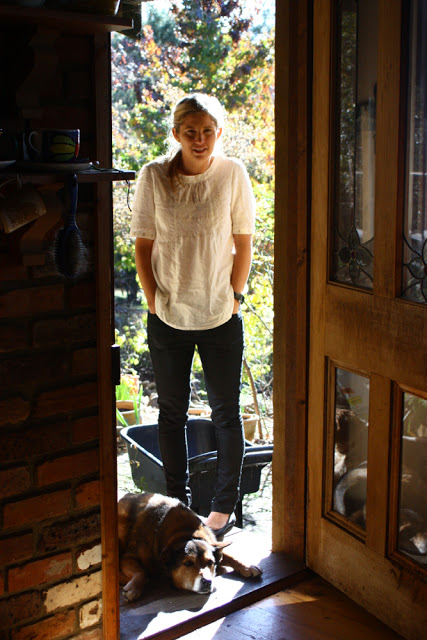
Not many people know this about Poppy, but she actually won an Athletics Tasmania silver medal. The story goes like this: It was the State Championships and Poppy came in the car to the race with me – she liked to come to my races and mix with the athletes afterwards. I put the windows down a little so she’d have plenty of air, and dashed off to the start line. Shortly before the gun went off, I heard very heavy breathing beside me. Who would be silly enough to get that out of breath before the race has begun? I turned my head to see, but there was no one there. I looked down, and there was Poppy, lined up with the runners.
“No hon, you can’t go in this race.” I enlisted the help of a teenager, asking him to put her in the car for me and raise the widows a tad. Bang went the gun. We were away. After about 500 metres, I heard the same heavy breathing again. Poppy had escaped once more and was now running beside me. I wasn’t going to sacrifice a state title to take her back; she’d just have to run the race. She wasn’t going to get in anyone’s road. Already the other females were quite a way behind, and one male was with me, but he was fine about it.

Poppy’s 9th Birthday – being lifted up to see the cake we’d eat on her behalf.
The ABC covered the race live on the radio. I was told later that the report to the interested public tuned in to the ABC went something like this: “Well, the runners are away, and already three have broken clear of the rest of the pack. Leading is Simon Phillips from Newstead Harriers, with Louise Fairfax tucked in close behind. In third place …. is … a DOG.”
Women don’t run as far as men in these races. At the 4.5km mark, I reached the women’s turnaround point. Simon, still about a metre ahead, had to continue another 1.5 kms before reaching the men’s turn. Poppy was faced with a very difficult decision. Should she turn around with me and head for home, or stay with her friend Simon (whom she knew from post-race functions). No doubt she reasoned, correctly, that he would be running for longer, so chose the men’s race. I ran my race, vaguely listening for her, but she was not to be heard.
Sitting looking at the daffodils with puppy Tessa.
At the end, chatting to people and laughing about Poppy’s behaviour, we turned to see Simon rounding the corner for the final 100 metres of the race. He raised his arms and crossed the line. And there, pursuing him for all she was worth, now appearing around the same corner but 100 metres in arrears, came a fast-finishing Poppy. She crossed the line and threw herself onto her back, demanding that her tummy be rubbed. Everyone praised her for a great job. Simon said that every downhill section, he would get away from her, but she would catch him back on the uphills. The design of the race was basically to run out uphill, and return downhill in undulations. The final section was all down, so he got away from her. He assured me that she knew she was in a race, and smiled with delight the whole time. She tried her hardest, but lost to a great competitor. At the medal ceremony, someone found a spare silver medal and placed it around Poppy’s neck. She wore it with pride and dignity.
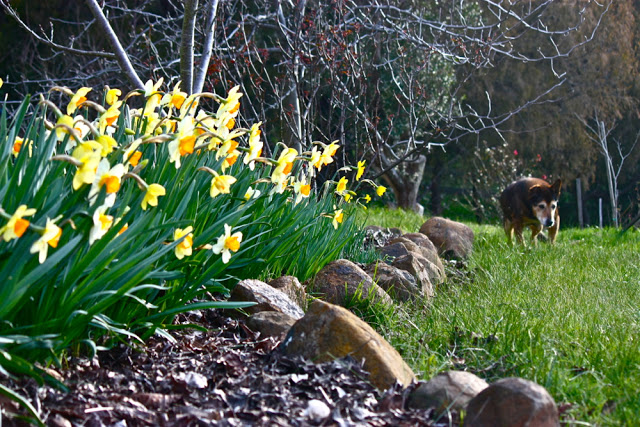
A very aged Poppy making her way amongst more daffodils
Perhaps Poppy’s most amazing story is her survival epic at the end of her life. In October 2011, I was in Melbourne for an orienteering event. I got a phone message from Bruce to say that he’d taken Poppy to the vet because of her leg problems and the vet had said we’d be lucky if she saw the week out. I was home a couple of days later. She was on medication (that she then had for the rest of her life), but did not look the slightest bit like a light about to go out. February 2013, however, she awoke one morning to find herself utterly immobile on the floor. She’d had a stroke. She was 14, so we assumed this was the end. I phoned our daughters and we all cried bucket loads, but everyone agreed she needed to go to the vet to be put down. She looked so glum and was probably in pain.
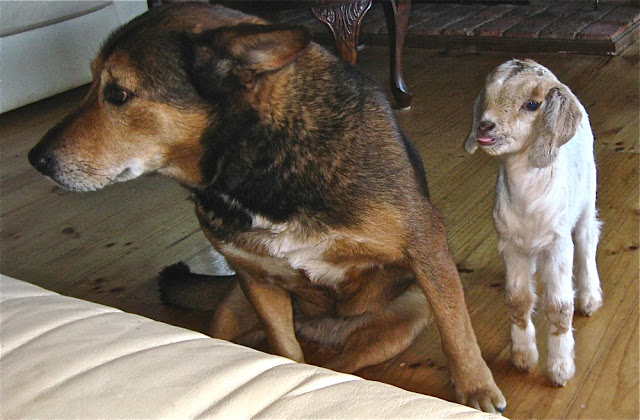
Sometimes she didn’t approve of our actions – like the time we had baby (goat) Arabella living in the house. It didn’t help that Arabella was so rude, sticking out her tongue to let Poppy know the negative feelings were mutual.
Fortunately for Poppy, I had had trouble reaching one of my daughters and hadn’t wanted to act until they had been given due warning about what had happened. In this time, she had learned to raise her head off the ground. By the time I got her to the vet’s, she was a little less glum. At the clinic, she lay on the floor; I sat beside her, patting her, tears flowing down my cheeks. The girls at the desk brought me a box of tissues. Peter (vet) came out to us, standing very tall seeing’s I was on the ground with Poppy.
“It’s time, is it?” he said in the gentlest of voices.
“Maybe not??” I said hopefully through sobs. He carried her in to his surgery for me as if she were the most precious item one could hold. With extreme care, he laid her onto his table to feel her.
“Does she still wag her tail or raise her head when you come home?” Yes. Both.
“Does she still enjoy her food?” Yes.
I can’t remember all the questions, but the conclusion was that she was (despite looking so glum) actually happy, and not in pain, and if we could tolerate the inconvenience (and smell) of having a dog who was too paralysed to get herself to the toilet without assistance, then she didn’t need to be put down. I was overjoyed, and phoned the girls as soon as I got home. If she can just last until Easter so everyone can say goodbye, that would be fabulous. One last look. One last pat. One last telling her that we’ve always loved her and we always will.
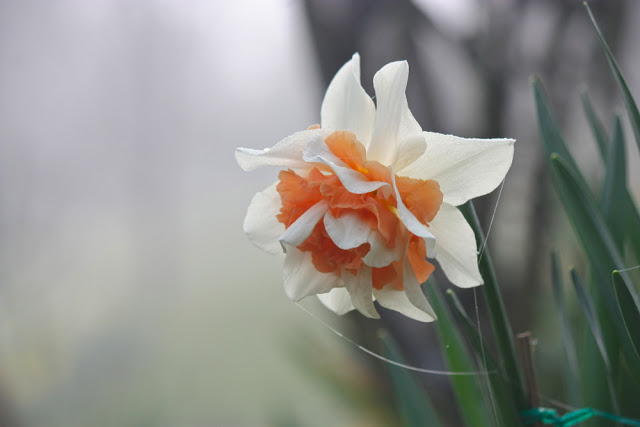
Daffodils. Poppy’s playground, and her job – helping me with them.
Maybe two weeks later, I saw an add in a florist’s window, just near the supermarket. I read it. It was looking for homes for puppies. I liked the breeds – many of our favourites. Amazingly, Bruce had noticed and read it too. We agreed that when Poppy died, Toby was going to be bored and lonely, and that this puppy seemed like a golden opportunity. We made the call and went to collect her. What a bundle of mischief! Kirsten phoned me the next day.
“How’s the new puppy?”
“OK”.
“How did she go overnight?”
“Hmm. Not so very well.”
“Where did she sleep?”
“OK, yeah, dad went downstairs and she slept with him.” She laughed at us.
The next night, the new pup seemed more settled, and we tried her outside with the other two dogs. From the first moments at our place, you could see that she loved Poppy, that Poppy was going to be a surrogate mummy. She snuggled into her and told us to get lost. Poppy’s face showed delight. She’s never had puppies of her own, and here at the end of her life, she was going to be a mother. She loved the puppy and licked her. Next morning, we watched while she tried to teach the pup a few manners and correct some of the cheeky flair that was already emerging.
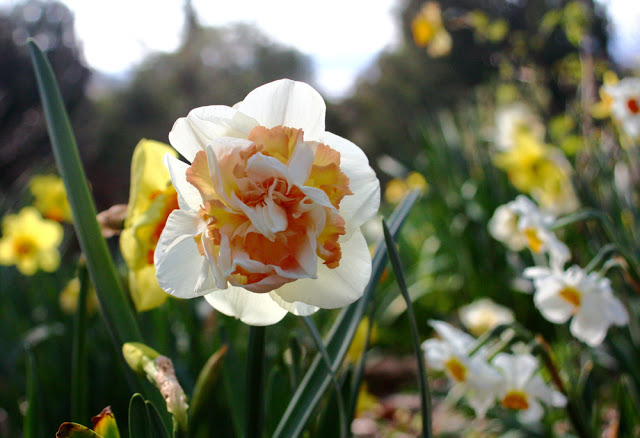
With each passing day, Poppy grew stronger. She needed to to discipline this outrageous puppy. She scolded it, but really, she needed to follow it around as it was so perpetually and ubiquitously naughty. And so with each day, borne of necessity, Poppy grew stronger. She raised herself up; she started dragging herself around the yard with her front paws, rear on the ground. Bit by bit, the rear came up and next she was walking (in a stiff, hobbled sort of way). By the time 2014 rolled around, she had adopted a unique style of running. But for the Easter of 2013, the year we are discussing, she was fit enough and agile enough to greatly surprise her human sisters.
And so time passed, with Poppy getting stronger rather than weaker as her mighty age became mightier. (Median death age for her breed is 11). Her 16th birthday came and went, and she looked as if she might live forever. We ceased to believe in her death. She’d come walking with us by the harbour in Launceston, rocking away and wobbling in her funny post-stroke gait, and anyone seeing her called her a champion. Because she couldn’t go far, I’d drop her off, change the parking spot, and she’d walk with Bruce to meet me. He had trouble removing her from where I’d left and had to use a lot of coaxing to get her to go in the required direction – until she saw my form approaching from the other end in the night lights and then she’d trot as fast as she could in my direction. She loved us both dearly, but did always stay a bit of a “mummy’s girl”.
Having a look inside. She already needed carrying in by the time this photo was taken
All good things must finally pass away, however. On Friday she did not look well, and was shivering, but we had to go to Melbourne. We left her in the extremely capable hands of our doggy babysitter, Matt, whom she adores. On return, he told us she was even weaker. You don’t operate on a dog that old. She was suddenly very skinny, despite the fact that Matt had fed her pure steak while we were away. We knew we had reached the endgame. At every move though, she indicated she was happy when we were there with her and that she wanted to die at home, with us and not in a vet’s office, with the issue forced. She fought death with all her might to the bitter end. I am not against euthanasia of humans or pets, but only believe it should be used if the dying one wants it. It is “happy death”, after all. Poppy’s “happy death” was to hang in there fighting until the last, despite any discomfort she may have been experiencing. Her only signs of displeasure were when I left her side, in which case she looked anxious.
On her last day, I stayed with her all day, stroking her, and being there for her. Tim, my gardener and handy man came, but chose to do no work. Instead, he sat with Poppy and me out among the daffodils and talked. She was very happy to see Tim and kept raising her head to see him better. She loved the sound of us talking. He said a reluctant goodbye after a few hours. Matt and the girls had already said farewell. Now it was just down to Bruce and me to keep vigil. In the evening, we pulled weeds around daffodils that live in the garden beds and she lay beside us, smelling the sweet perfume. She did not sleep one wink that day. I think she feared the consequences of letting her guard down. We all knew that sleep would bring her terminus and she fought it off mightily as she fought off death. But at 11 pm we humans were exhausted from a harrowing day, and bid her goodnight. Bruce got a mattress from Yelena’s bed and lay on the floor beside her so she wouldn’t be alone. She knew she wasn’t alone. She knew it was time for us to sleep and that once she slept, her end would come. She was, as expected, dead when I called in to see how she was in the morning, lying beside the man she had tried so hard to protect me from. He slept still.
Poppy’s life was love. She never ceased to give it. She gave it unconditionally and without agenda. For sixteen years she has accompanied me on every job, been by my side for the joys and cares of my life. Farewell my precious one.
